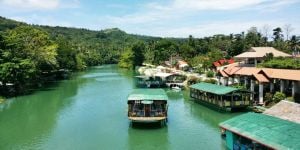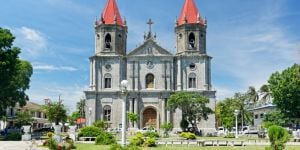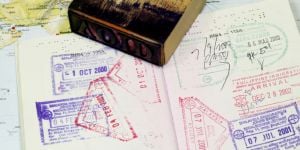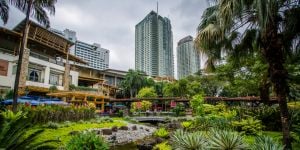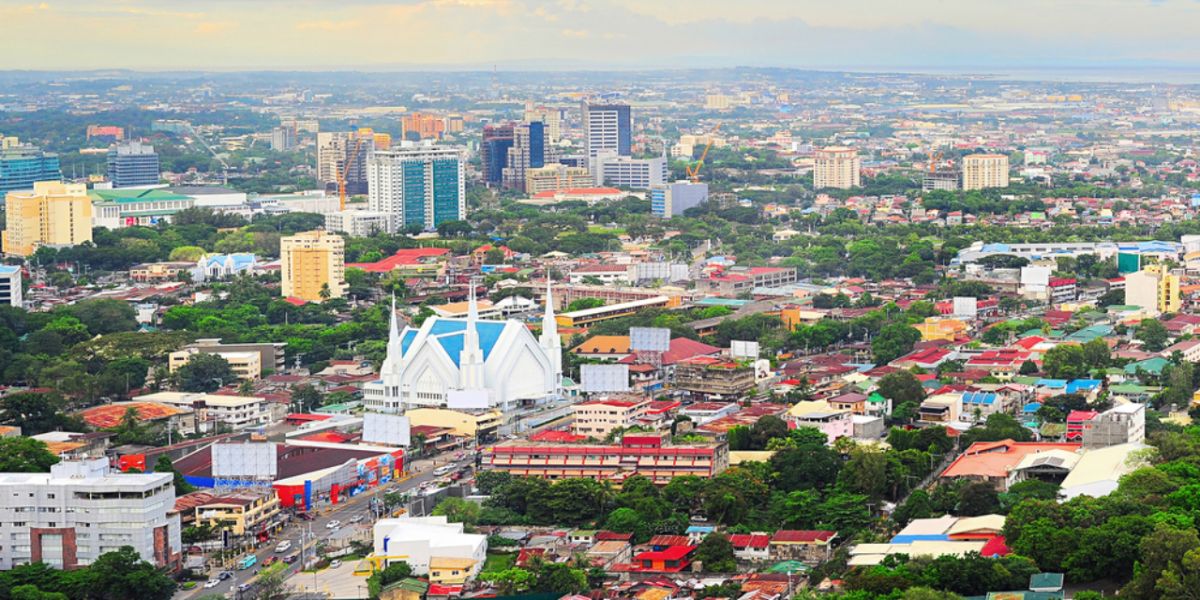
What are the career prospects for expats in Cebu? How to proceed to find a job there? What is the work culture and dress code? How to apply for a job and get the correct visa? Find out the above and more in this article.
Cebu, the 6th oldest Philippine city, has the whole archipelago's second busiest airport, the Mactan-Cebu International Airport, which is found on Mactan Island. In fact, Cebu is a group of islands, including a main island. Its economy is the fourth largest in the country.
Cebu is a friendly and lively city. It is generally safe for expat workers. Still, be cautious and avoid poorly lit and deserted areas, especially at night.
Cebu is an economically prosperous and dynamic city where there are lots of potential jobs for the keen expat job-hunter. But you are advised to take the time and inquire about the labor market's conditions and requirements before starting your job search. Please note that employers in Cebu, as in the rest of the Philippines, will only seek foreign labor when the skills required for a specific job are not available locally. In other words, for expats to be hired instead of locals, they must show their expertise in their chosen industry.
The economy of Cebu
The economy of the Province of Cebu is the largest in the Philippines, according to the Philippine Statistics Authority. In 2019, the Cebuano economy peaked at $6 billion, making it the largest in the nation. Cebu has been reigning as one of the most populous and wealthiest provinces in the region for eight consecutive times, with assets amounting to approximately 215.27 billion Philippine pesos in 2021.
Cebu has also been attracting many multinational companies due to its proximity to sea routes and intra-Asian air networks. Its economy is dominated by the service sector. According to the strategic advisory firm Tholons (2021), Cebu made it into the list of the top 100 Outsourcing Destinations, coming in at the 52nd spot after more well-known BPO locations such as Manila and Mumbai.
The following are the drivers of the Cebu economy:
Manufacturing
Food, Beverage, and Tobacco
Textiles, Leather, and Apparel
Wood, Paper, and Printing
Petroleum, Coal, Chemicals, Plastics and Rubber
Nonmetallic Mineral
Primary Metal, Fabricated Metal, and Machinery
Computer and Electronics
Electrical Equipment, Appliances, and Components
Transportation
Furniture
Miscellaneous Manufacturing
Financial intermediation
Banks
Credit Unions- local multi-purpose co-operatives
Pension funds
Insurance companies
Stock exchanges
Construction
Residential
Institutional
Commercial
Public construction
Heavy construction
Trade/Retail trade
Import trade- electronics, machinery, mineral fuels & oils, vehicles and iron & steel
Export trade- electronic products and other manufactures, woodcrafts, coconut, pineapple and abaca
Hypermarkets
Supermarkets
Traditional grocery retailers
Apparel and footwear specialist retailers
Information technology
Software
Analytics
IT
Data
Digital Marketing
Database
UX Design (User Experience Design)
In fact, ICT has widely developed in the region with the support of the Chamber of Commerce and the local industry. It definitely seems like the region aims at becoming a long-term investment destination in South-East Asia in terms of computer applications, cloud services and ICT. The top export product of Cebu is electronics, with Japan as its top market, followed by USA and China.
Tourism-related serviced
Department of Tourism positions
Hospitality (Hotels)
National parks
Ecotourism sites
Scuba diving
Festivals and events
Beach resorts
Golf courses
Yachting and marina industries
Cruise ships
Cebu also hosts nearly 80% of the country's domestic and international maritime vessel operators and manufacturers thanks to extensive port facilities. The Philippines, for instance, ranked 4th among the world's biggest shipbuilders thanks to its professionals' expertise in this field. Away from ports, you will find banks, shopping malls, and many other office buildings.
Good to know:
Mactan Island hosts two economic zones, which include factories and multinational companies that have set up their subsidiaries in the region. These are the Mactan Economic Processing Zones 1 and 2 (MEPZ-1 and MEPZ-2). You will also find the Cebu Park District, which has given rise to many residential and commercial real estate projects.
Finally, there are a plethora of mining factories, among which the Cebu Limestone Mining Company, as well as quarries in Toledo, Danao and Naga.
Wages in Cebu
The average wage in Cebu City is php391,511/ USD 7,078 USD per year. For qualified expats who have acquired a job (a specialist job that does not impinge on the local work pool; a job that cannot be sourced locally), salaries can be anything between php100,000/ USD 1,808 USD -php250,000/ USD 4,520 per month and above if working for a multinational.
This is good news as Cebu is classified as cheaper to live in than Manila (33% cheaper) and 83% cheaper than New York City, New York.
Finding a job in Cebu
The Philippine government job portal, PhilJob Net, which lists both local, provincial and national job opportunities, is a good starting point for your job search in Cebu. Most foreign professionals in Cebu are employed as CEOs and managers in the economic zones, so you might also want to check the vacancies in the companies located within these zones. The Philippine Economic Zone Authority (PEZA) website lists all operating zones by industry and location. Otherwise, you can take the first step in your job search online by browsing the following websites:
Mynimo is a Cebu-focused job portal for the Philippines that you can search on.
If you are already in the country, feel free to inquire about the major companies operating across the country and select a few to which you can send spontaneous job applications. Networking is also hugely important in Cebu and beyond.
The interview process in Cebu
The next step for the job-hunting expat in Cebu is to apply for their preferred position. Starting with an updated CV and a cover letter, applications are made through the relevant company or a recruitment agency.
The CV should include a 2'x2' headshot photo on the top left-hand side, use an international tone rather than local vernacular, and include references and projects that have been completed. Let your CV speak to the interviewer and their company. The cover letter should be directed at the company using a courteous and formal tone with hints that you are knowledgeable about the company and industry. Stand out from the crowd; be professional and slick.
If called for an interview in Cebu, it is advised to dress smart and be on time. Be au fait with the company in question, ask the right questions, have strong communication skills.
Visa requirements for working in Cebu
Work visa
The most commonly issued work visa for expatriates in the Philippines is the 9 (G) visa, also known as the Pre-arranged Employment Visa. This visa allows employers in Cebu and the Philippines to hire expatriates who possess skills, qualifications, and experience that may be in high demand and limited supply within the country. However, it's important to note that if there are qualified Filipinos available for a specific job, they will be given priority in the hiring process. For more information, please refer to our article on Visas for the Philippines.
Good to know:
It is strictly prohibited to work in Cebu with only a tourist visa.
Work permit
Foreign professionals who plan to work in Cebu are required to obtain a work permit. There are three main work permits in the Philippines, and they are obtained from two agencies — the Department of Labor and Employment and the Bureau of Immigration.
The following documents are needed to apply for an alien work permit must be submitted to your local DOLE office:
Completed application form
Employment contract
Employees passport with a valid visa
Employer's Business Permit
If the duration of employment is less than 6 months, a Special Work Permit should be acquired. If the employment is more than 6 months, then an Alien Employment Permit (AEP) should be obtained by the expat.
Working conditions in Cebu
The next step after landing a job in Cebu is understanding and equipping yourself with the necessary knowledge about the local labor laws to safeguard your rights as a foreign worker in the Philippines. In Cebu, in general, employees work for approximately eight hours a day, totaling 40 hours a week. Employees usually have two rest days, which are commonly Saturdays to Sundays. It is common for an additional 30% over time to be added for additional hours. Always read your work contract carefully before signing and ask your company about anything that you do not understand.
Five paid leaves are also included per year once you have rendered a full year of service in the company. Cebu, as the rest of the country, has a total of eighteen national holidays each year, and working on a holiday can allow for double time.
The work culture in Cebu
Cebu, island, central Philippines. It is the center of Visayan-Cebuano culture and has preserved a strong Spanish tradition in its cultural life. Do not be surprised to find people speaking Visayas, rather than Tagalog.
If you have a strong English accent, it may be difficult for some Cebuanos to understand you clearly, so it is always recommended to slow down the pace ever so slightly. Schools in Cebu teach American English, and most of them use a standard neutral tone. Thus, Cebuano may find it slightly challenging to understand if you have an unusual accent.
Although most international business is conducted in English, it is useful to arm yourself with a few words of Visayas before starting work there:
Maayong buntag! - Good morning!
Maayong adlaw! - Good day!
Maayong hapon! - Good afternoon!
Kumusta? - Hello, how are you?
Maayo raman ko, ikaw?/Okay raman ko, ikaw? - I'm good. ...
Unsa imong ngalan? - What is your name?
Ang akong ngalan si [your name]
Working in Cebu can be an enjoyable experience as your work colleagues will be very friendly and outgoing, if a little shy at first. Cebuanos are non-confrontational people and gentle, meaning that you should always request clarity in tasks and administering tasks.
The over-familiarity of Cebuanos can be a little surprising for expats. Do not be shocked to be asked about your marital situation and your likes and dislikes.
Birthday parties are a huge occasion for Cebuanos and Filipinos, in general, so be prepared for many celebrations in the workplace and a colloquial comradeship within offices!
The professional dress code in Cebu
In the work environment in Cebu, expats are required to dress conservatively and modestly. The traditional values of Catholicism also apply to the Cebu workplace.
As the heat can reach exorbitant heights, most men wear short-sleeved shirts with or without a tie. Formal trousers are generally required, but shorts are not the norm. A jacket is good to have on standby for more formal meetings.
For expat women working in Cebu, avoid clothing that may be seen as provocative. Opt for dresses or pants that cover your knees, shoulders, and chest. If you do want to wear a sleeveless shirt, ensure it has a high neckline.
Useful links:
We do our best to provide accurate and up to date information. However, if you have noticed any inaccuracies in this article, please let us know in the comments section below.
